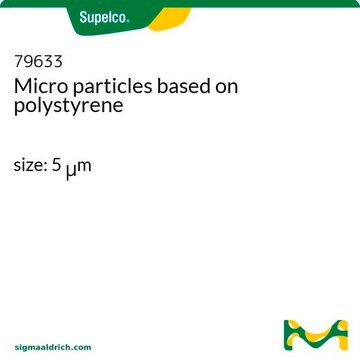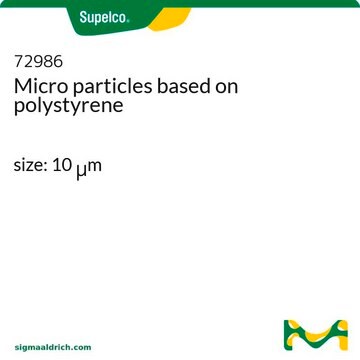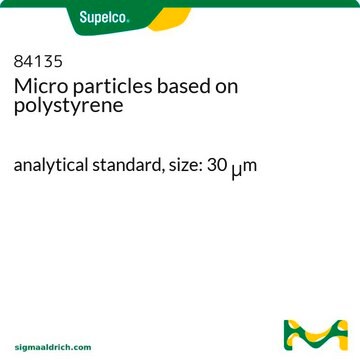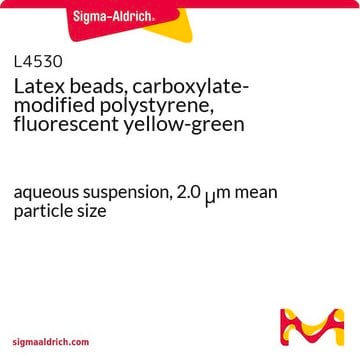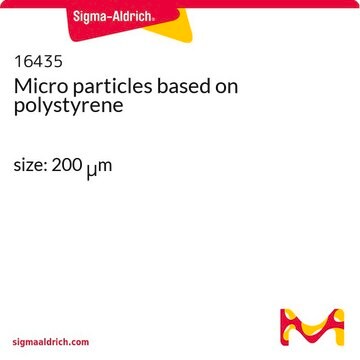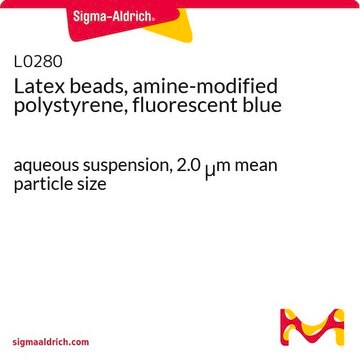78452
Micro particles based on polystyrene
size: 2 μm
Synonym(s):
Latex beads from PS
Sign Into View Organizational & Contract Pricing
All Photos(1)
About This Item
Recommended Products
Quality Level
form
aqueous suspension
crosslinking
2 % cross-linked
concentration
10% (solids)
particle size
2 μm std dev <0.05 μm, coeff var <3%
density
1.05 g/cm3
storage temp.
2-8°C
Looking for similar products? Visit Product Comparison Guide
Analysis Note
For every lot exact values of particle size and standard deviation are determined with an accuracy of 0.01 μm using a Coulter Multisizer.
Storage Class
10 - Combustible liquids
wgk_germany
WGK 3
flash_point_f
Not applicable
flash_point_c
Not applicable
ppe
Eyeshields, Gloves
Choose from one of the most recent versions:
Already Own This Product?
Find documentation for the products that you have recently purchased in the Document Library.
Customers Also Viewed
Ali Rahmani et al.
Electrophoresis, 39(3), 445-455 (2017-09-26)
In recent years, applications of dielectrophoresis-based platforms have been recognized as effective and dependable approach to separate cells and bioparticles, suspended in different carrier fluids, based on particle size and electrical properties. In this study, a microfluidic device was fabricated
Johanna Trägårdh et al.
Optics express, 27(21), 30055-30066 (2019-11-07)
Multimode fibres have recently been employed as high-resolution ultra-thin endoscopes, capable of imaging biological structures deep inside tissue in vivo. Here, we extend this technique to label-free non-linear microscopy with chemical contrast using coherent anti-Stokes Raman scattering (CARS) through a
Brenda Quistián-Vázquez et al.
Lasers in surgery and medicine, 52(6), 552-559 (2019-10-02)
Optical properties characterize light propagation in turbid media, such as tissue. Recovery of optical properties is of great importance in a wide variety of biomedical applications, including both therapeutic treatments and diagnosis. Most of the available methodologies are well established
Our team of scientists has experience in all areas of research including Life Science, Material Science, Chemical Synthesis, Chromatography, Analytical and many others.
Contact Technical Service